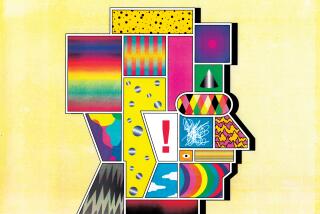‘How Will You Measure Your Life?’ enables personal growth
Clayton Christensen achieves the difficult feat of being at once imposing and humble.
When I visited him last autumn at Harvard Business School, he laid out with quiet authority his latest thoughts on disruptive technology, the concept that justly made him famous in the mid-1990s. But he also took time to chat about his son’s college basketball team, a poster of which hangs on one wall of an office full of family photos and memorabilia.
Although he places great value on his family and faith — he is a devout Mormon — his research and teaching have dominated his public story. Until now, outside the Acknowledgments section, he has never tried to put his personal and professional lives in the same book.
Published by HarperBusiness, “How Will You Measure Your Life?” is a big departure from his breakthrough book “The Innovator’s Dilemma.”
The story of the genesis of the book and the Harvard Business Review article that preceded it has entered the lore of the business school. In recent years, the avuncular professor has ended his MBA course with a discussion about how the theories he applies to businesses can be applied to individuals.
The aim is to explore with students, he writes, “not what we hope will happen to us but rather what the theories predict will happen to us, as a result of different decisions and actions.”
In spring 2010, suffering from a cancer similar to the one that had killed his father, Christensen was asked to turn this discussion into an address to the entire graduating class of Harvard Business School. Karen Dillon edited the speech into an article, still one of the business review website’s most read, and she and James Allworth helped him rework the ideas into this book.
The inspiration for discussing with his students the question of how to lead a life of happiness and integrity came from his five-year reunions with his own business school classmates at Harvard.
Gradually, Christensen realized their idealism was disintegrating in many cases into “personal dissatisfaction, family failures, professional struggles, even criminal behavior” — one contemporary was Jeff Skilling, the disgraced former chief executive of Enron. Skilling was “a good man,” he says in the book, but “something had clearly sent him off in the wrong direction.”
Discontent and deviation from ethical norms continue to discolor corporate life, which explains in part why this book and its lead author are garnering such attention.
The post-Enron period ushered in a stronger emphasis on ethical leadership, but it turned out to be the prelude to a far greater banking crisis, almost a case study of what happens when individuals ignore the book’s lessons about maintaining personal integrity.
Christensen illustrates this with a story about how, while studying at Oxford (he was a Rhodes Scholar), he was asked to play in an important university basketball game on a Sunday. After praying for guidance, he declined, sticking with a commitment he had made not to play ball on the Sabbath.
The “marginal costs” of bending your personal values “just this once” are low, he writes, but “each of those decisions can roll up into a much bigger picture, turning you into the kind of person you never wanted to be.”
He is adamant this is not a “self-help” manual. He told me, half-jokingly, that finding the title sitting alongside such volumes in bookstores was his “nightmare”: “I hoped it wouldn’t be that type of bromide.”
In the book, Christensen attacks “the appeal of easy answers,” whether from “writers who are hawking guaranteed steps for making millions or the four things you have to do to be happy in marriage.”
He protests too much — and unnecessarily. With its three short sections on careers, relationships and ethics and its comfortable, chatty tone, it will appeal to readers avid for that type of advice.
But what makes the title valuable for a wider audience is that it is more genuinely a self-help book than the genre it disparages. Instead of force-feeding readers with orders on how to improve, it aims to give them the tools to set their own course.
Christensen picks up these tools from businesses that he has studied. Honda’s breakthrough into the U.S. motorcycle market — based on the accidental success of its smaller bikes — becomes a lesson in how to balance a career plan with an openness to other opportunities.
It is no autobiography. Christensen writes comparatively little, for instance, about his faith, even though he told me he had become “much more open about the importance of religion in our lives.”
But he uses personal experiences to underline the message, such as the day his mother taught him to repair his own jeans (the virtue of self-sufficiency) or his habit of leaving work early so he could play with his children (the need to invest your time appropriately).
Sometimes the book is as schmaltzy as a ghostwritten CEO memoir. But it gains force from Christensen’s sincerity.
Dillon says that Christensen was at first reluctant to publish these insights but that they fit the pattern of his earlier work. He told me last year, for example, that he had sought to codify what goes on in the mind of born innovators so “average folks can do it.” This book, too, seeks to codify what makes for a successful life and career.
“How Will You Measure Your Life?” is an intriguing paradox: a self-help book that is not a self-help book, based on rigorous research but enlivened by anecdotes about the experiences of a man who is hailed as a model by his students.
But whereas “The Innovator’s Dilemma” shifted business thinking about disruptive technological change, I fear the task of changing human nature is beyond even a teacher of his caliber.
Hill is the management editor of the Financial Times of London, in which this review first appeared.






